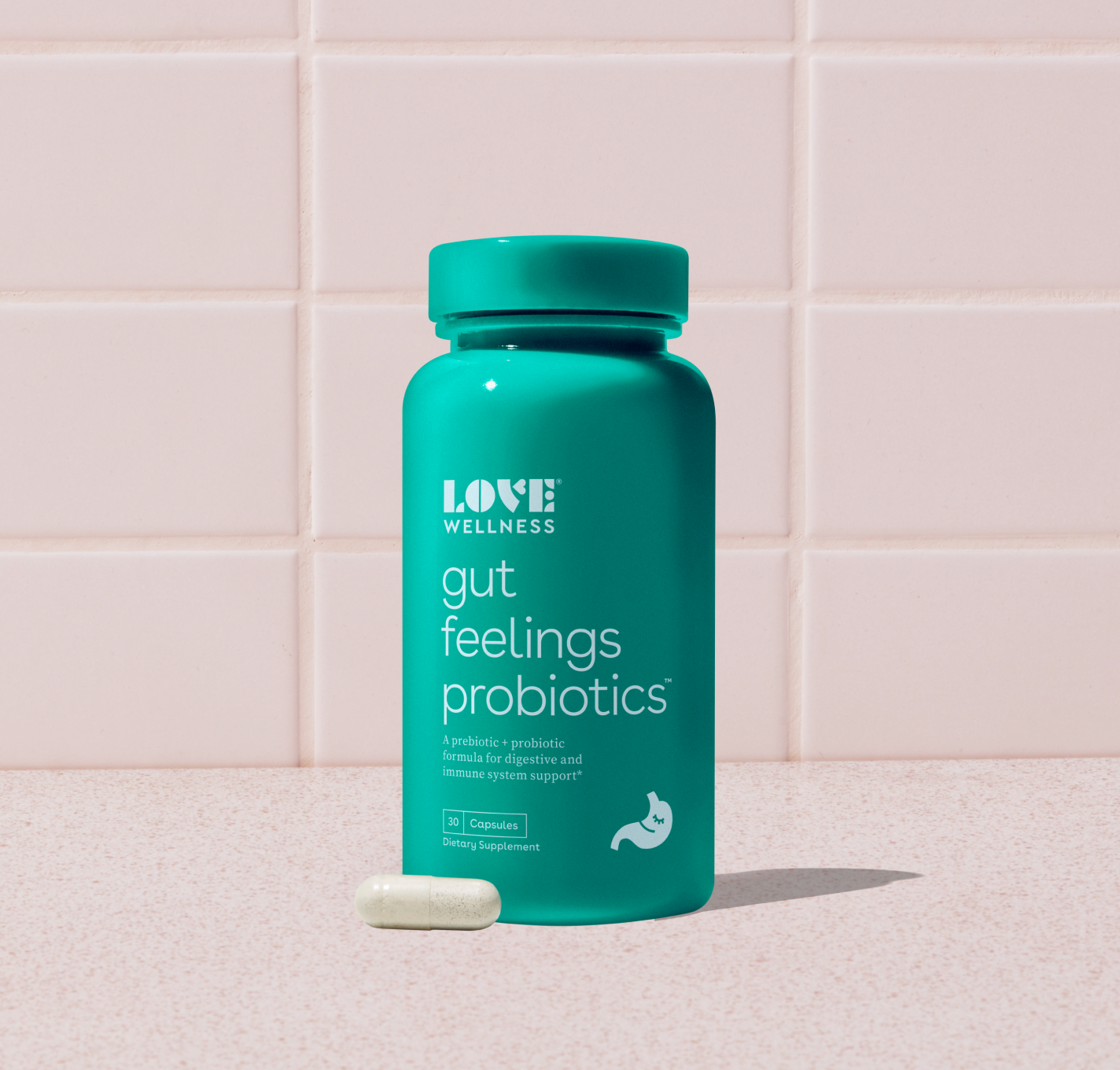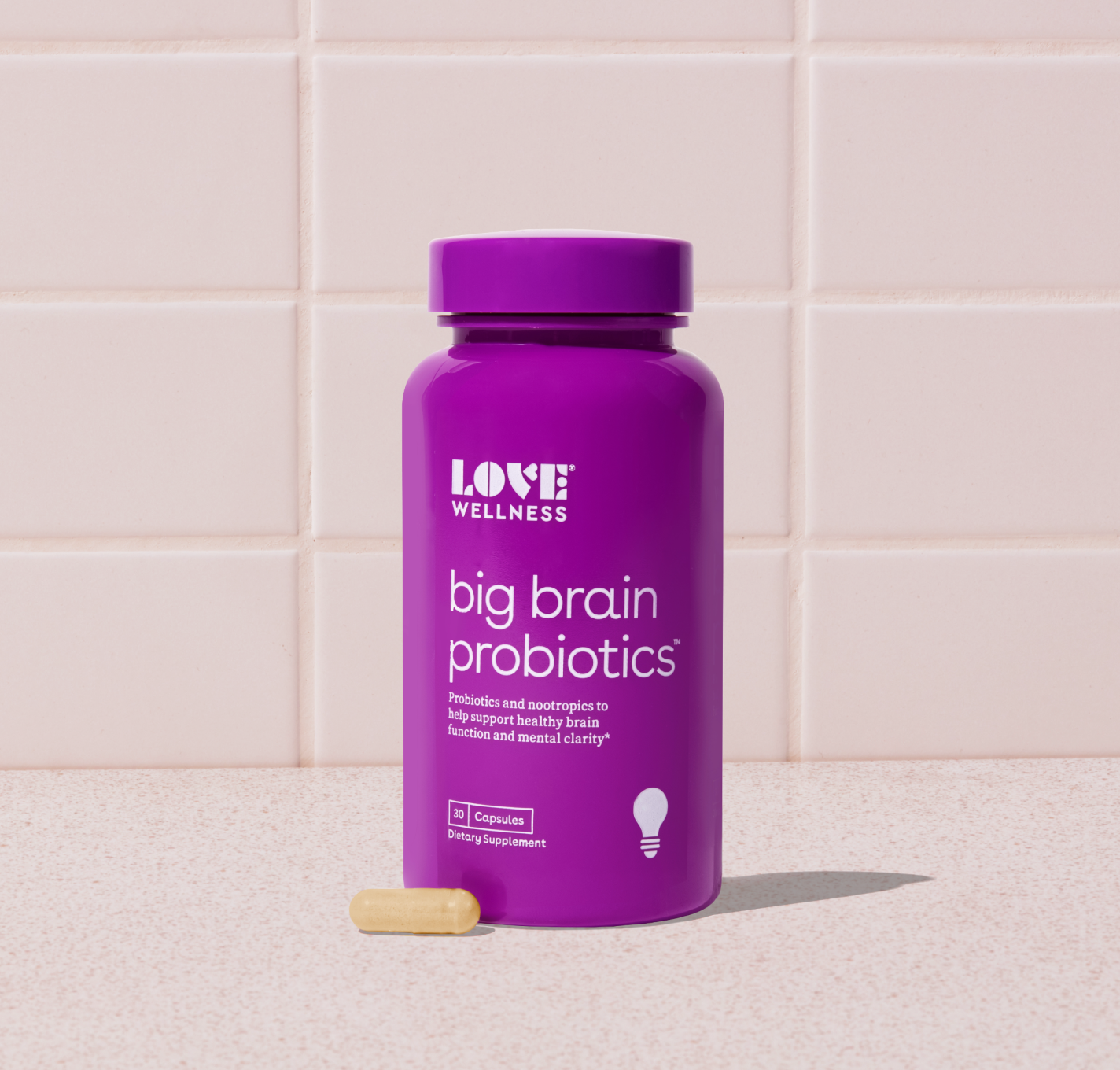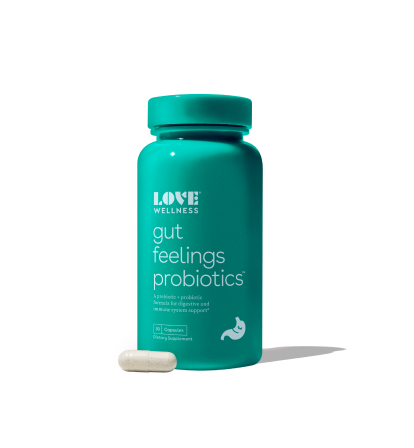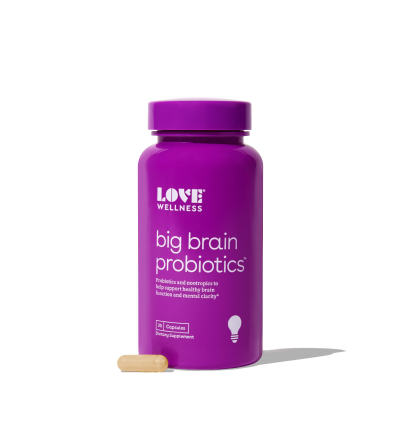Have you ever “trusted your gut” when making a tough decision? Or felt a million butterflies in your stomach after catching a glimpse of your crush? Well, when these occurrences happen, you’re likely getting sensations from an unsuspected source: your second brain.
Tucked away in the walls of the digestive system, this “second brain” is taking the world by storm — and it’s easy to see why. From digestion to mood and even the way you think, your so-called second brain appears to influence just about your entire body.
Interested in learning more? Love Wellness has your back. Read on to learn about the gut-brain connection, including some surprising facts on how it works.
What Is the Gut-Brain Connection Anyway?
Simply put, the gut-brain connection is a two-way communication system (scientifically known as the gut-brain axis) between — you guessed it — your gut and brain. This axis links the body’s nervous system in the gut, called the enteric nervous system (aka your “second brain”), and the central nervous system, which includes your actual brain.
What Does the Second Brain Control?
Unlike your real brain, the body’s “second brain” can’t do your taxes, drive a car, or compose a symphony. Its main role is controlling digestion — from swallowing food to releasing enzymes to controlling blood flow and nutrient absorption.
In other words, the enteric nervous system might not be capable of thinking its own thoughts, but it does communicate back and forth with the big brain in our skull.
How Exactly Do the Brain and Gut Communicate?
The enteric nervous system communicates with your brain both physically and biochemically:
- Physically. These connections that go back and forth travel along the gut-brain axis via the vagus nerve. This nerve (which is actually your body’s longest) also controls messages that are sent to the heart, lungs, and other essential organs.
- Biochemically. These chemical messages and neurotransmitters are affected by your gut microbiota — a community of fungi, viruses, yeast, and live bacteria that call your gut home. Many different microorganisms live inside your digestive system and intestinal tract, some of which can be beneficial to your overall health while others may be harmful.
Given how closely the gut and brain interact, it’s much easier to understand why you might feel those butterflies in your stomach when feeling nervous or tummy distress during times of stress.
What Should I Know About the Gut-Brain Axis?
Ready to have your mind blown? Check out these surprising facts about the gut-brain axis below:
1. The gut-brain axis is connected through the immune system
In addition to being linked through the vagus nerve, your gut-brain axis is also connected through your immune system. In fact, a huge proportion of your immune system is actually in your GI tract.
These immune cells in your gastrointestinal tract interact with the microbiome and are directly influenced by your diet and lifestyle. This is because the foods we eat affect the diversity and the composition of gut bacteria, which in turn, affect immune cells. Those itty-bitty gut bacteria operate at their best and support strong immunity when their host (that’s you!) fuels up on whole foods that are high in fiber.
Lacking in the fiber department? You’re not alone, as most Americans these days aren’t getting enough of the stuff. Fortunately, there are a number of supplements out there that can help you — like Sparkle Fiber! This super greens blend is full of veggie-based fiber to support sustainable energy and clear skin from within.*

Or 4 interest-free payments with Klarna.
Available for orders above $35. Learn more
2. You can influence your gut-brain connection with probiotics
When your gut health is lacking and your gut microbiome becomes imbalanced, a little thing called dysbiosis happens, which can leave you susceptible to a number of not-so-wonderful symptoms, such as:
- Acid reflux or heartburn
- Food intolerance, gas, and bloating
- Breakouts and skin rashes
- Digestive problems (think diarrhea, constipation, etc.)
- Daytime sleepiness
Luckily, you can influence your gut-brain connection by giving your friendly gut bugs a boost with a probiotic supplement like Gut Feelings Probiotics. This shelf-stable prebiotic and probiotic formula has clinically studied ingredients — including 3 billion CFUs of probiotic strains — that work together in perfect harmony to support a calm digestive system, overall digestive health, and a healthy immune system.*
Simply take one capsule a day and rest easy, knowing that your second brain has the support it needs to thrive!
Gut Feelings Probiotics®

Or 4 interest-free payments with Klarna.
Available for orders above $35. Learn more
3. Gut health and mental health influence each other
We'll be the first to say that gut health and mental health are complex, but there’s increasing evidence suggesting that they can influence each other.
In fact, the gut produces more than 90 percent of the happy hormone serotonin as well as 50% of the pleasure-seeking hormone dopamine. With this in mind, it’s easy to see how a gut imbalance can indirectly affect our mood and behavior!
Pro Tip: Feeling moody? Get your gut health in check and support brain health with Big Brain Probiotics — an intelligent blend of probiotics and nootropics to help support brain function and cognitive health while helping to maintain a healthy mood and sense of calm.*

Or 4 interest-free payments with Klarna.
Available for orders above $35. Learn more
Conclusion
So, what exactly is the gut-brain connection, you ask?
In short, it’s a two-way communication system (known as the gut-brain axis) between your gut and brain. Although these two body parts are fairly different, this connection they share makes it, so they directly influence each other. This is why you might feel queasy before giving a presentation or experience some cramping during high times of stress.
Of course, this doesn’t mean that functional GI complaints are all in your head. Psychological factors like stress and tension can indirectly affect the GI tract — this is thanks to the gut-brain connection.
Here at Love Wellness, we create natural solutions for natural problems. Whether you’re struggling to find focus, have questionable odors coming from down there, or simply want to heighten your gut-brain connection, you can always count on us to have clean supplements.












